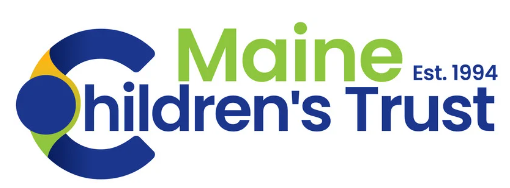OUR APPROACH
What Makes Families Strong?
Every family has challenges, but they also have strengths. Research shows that having the 5 Protective Factors in your life keeps families strong. By understanding these five areas of strength, we can all improve our families' lives through understanding our needs as caregivers and our children's needs so that we have less stress in our daily lives.
1) Knowledge of Child Development: Information on how kids grow and how to help each unique child thrive
2) Parental Resilience: The ability to bounce back from stress and cope with challenges in a positive, constructive way
3) Concrete Supports in Times of Need: Access to services and resources that keep a family safe and healthy, such as food, shelter, and healthcare
4) Social Emotional Competence of Children: Children know that they belong, know they are loved, understand their feelings and can get along well with others
5) Supportive Social Connections: Having friends, family and community that provide emotional support in tough times and help celebrate good times
*https://cssp.org/our-work/projects/protective-factors-framework
The Importance of Prevention
The root causes of childhood trauma, including exposure to substance abuse, domestic violence, and abuse and neglect, can lead to significant challenges in adulthood. Supporting families to reduce their stress so that they can focus on supporting their child's healthy development is key to reducing the potential of child trauma, especially abuse or neglect. Child abuse prevention research strongly supports primary prevention efforts as an effective deterrent to the human and financial impacts associated with child maltreatment.The prevention efforts led by the Trust are proven strategies for strengthening families and saving money that might otherwise be needed for intervention or treatment services. The Trust focuses on primary and secondary prevention strategies to stop maltreatment before it occurs. While both are proactive, all families can benefit from primary prevention activities and secondary prevention efforts focus on families that have an identified risk factor. The Trust provides a solid infrastructure to help local community-based organizations deliver these high-quality prevention services and activities in ways that fit local needs.
What We Know From Science
The first months and years of a child's life are a critical time for brain development. In the absence of responsive caregiving - or if caregiving responses are unreliable or inappropriate - the brain's architecture does not form as expected, which can lead to disparities in learning and behavior.Toxic stress weakens the architecture of the developing brain, which can lead to lifelong problems in learning, behavior, and physical and mental health. Toxic stress can occur when a child experiences strong, frequent, and/or prolonged adversity - such as physical or emotional abuse and chronic neglect - without adequate adult support. This kind of prolonged activation of the stress response systems can disrupt the development of brain architecture and other organ systems, and increase the risk for stress-related disease and cognitive impairment, well into the adult years.
Experiencing childhood trauma - including being the victim of child abuse and neglect - is associated with increased risk of health and psycho-social problems later in life: alcoholism and alcohol abuse, illicit drug use, depression, intimate partner violence, adolescent pregnancy, unintended pregnancies, liver disease, chronic obstructive pulmonary disease, ischemic heart disease, and more.
*http://developingchild.harvard.edu/science/key-concepts/serve-and-return
**http://developingchild.harvard.edu/science/key-concepts/toxic-stress
***http://www.cdc.gov/violenceprevention/acestudy/findings.html
